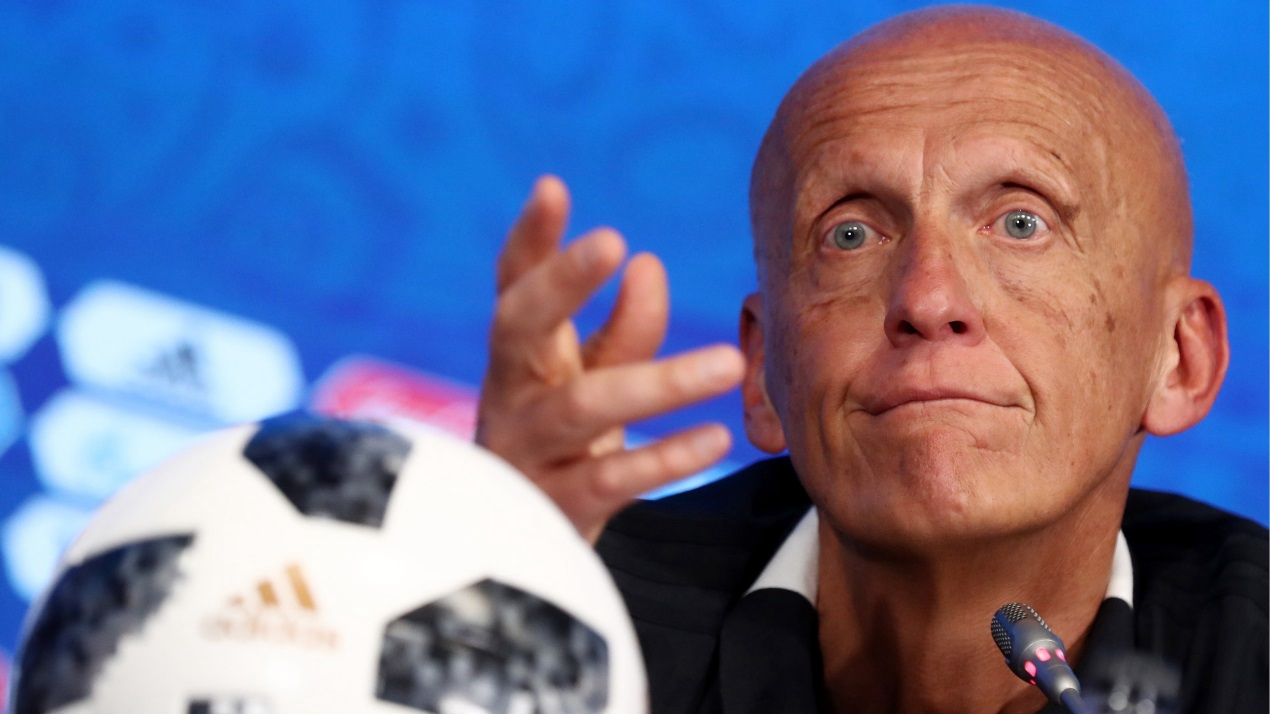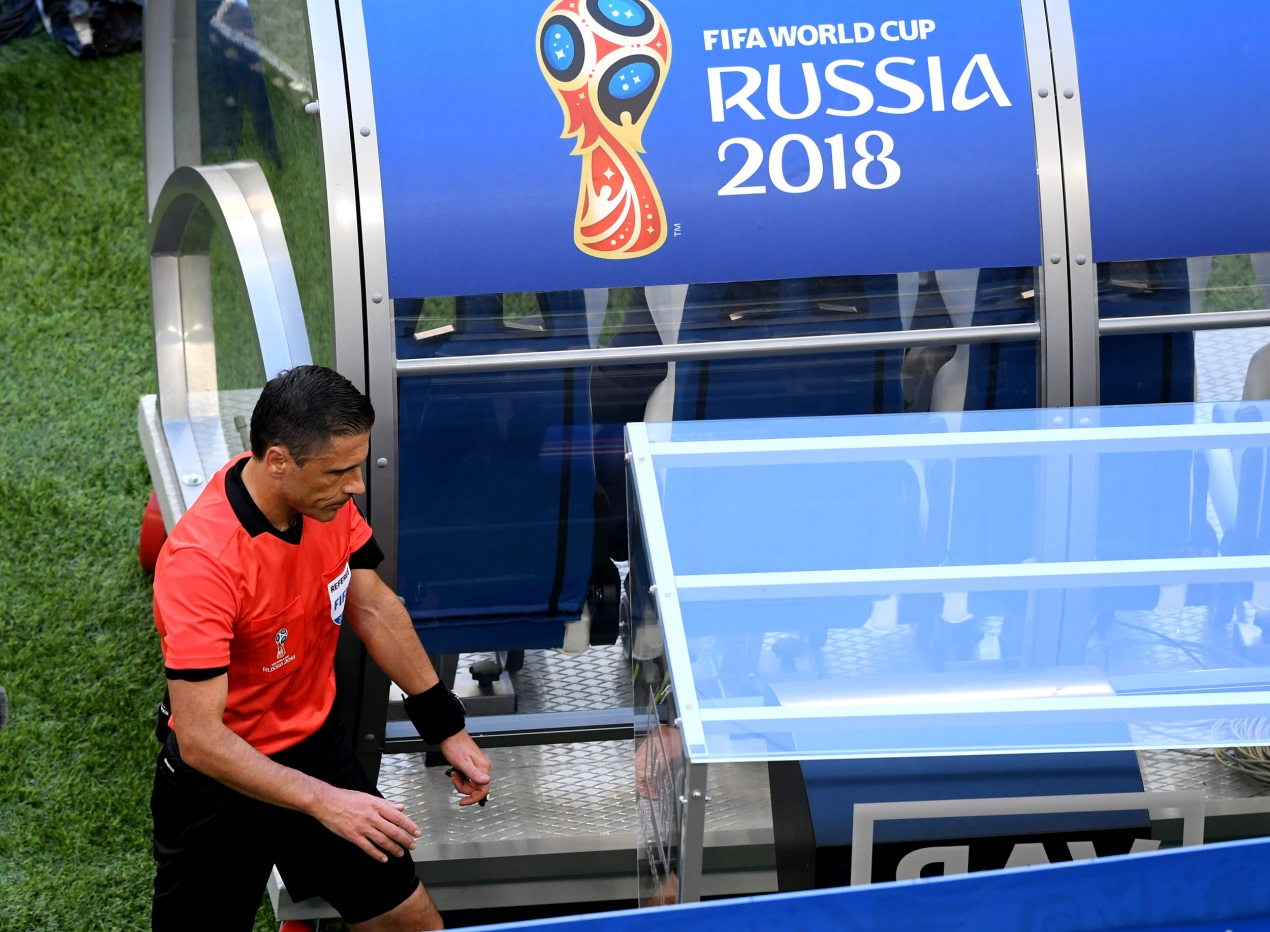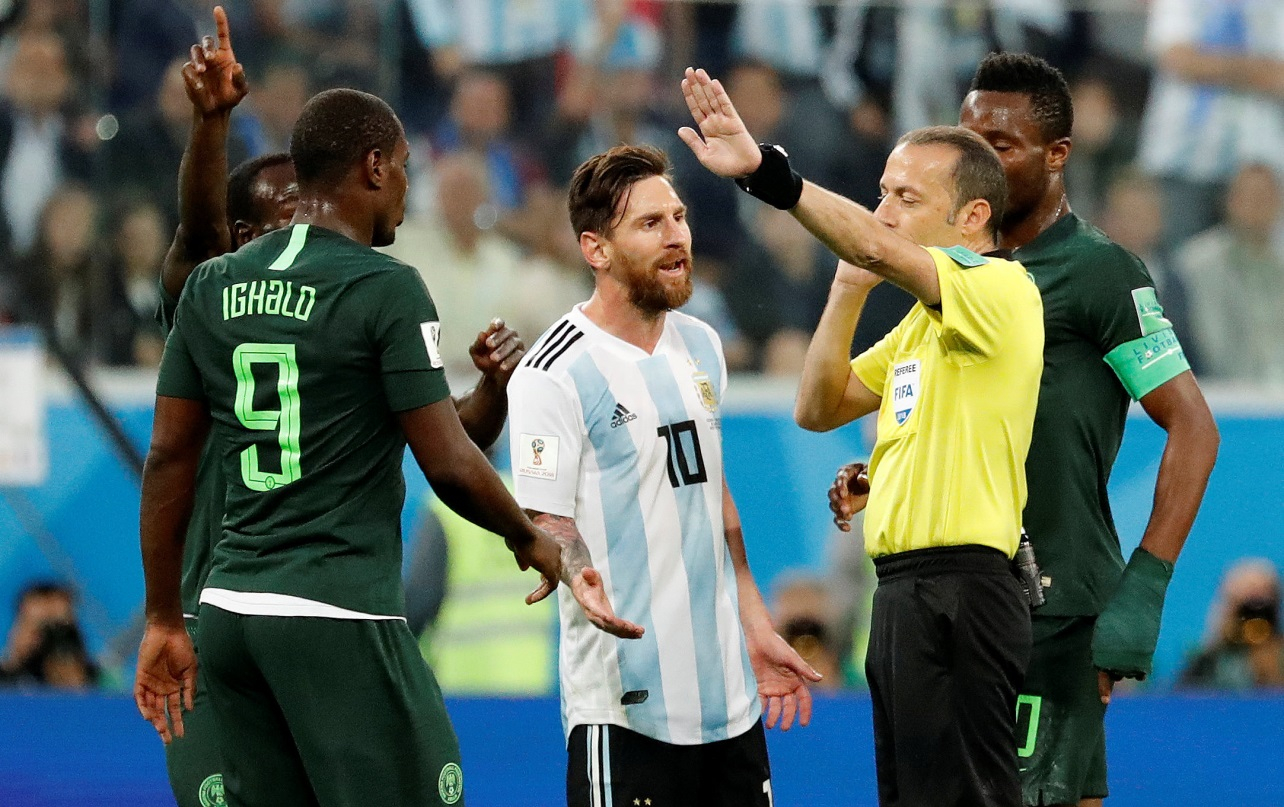
Sports
12:54, 30-Jun-2018
FIFA referee chief praises VAR
Updated
12:09, 03-Jul-2018
Sports Scene

FIFA referees committee chairman Pierluigi Collina said on Friday he was "pleased" with the impact of the video assistant referee (VAR) system during the group stage of the World Cup.
After experiments in different FIFA tournaments, Serie A in Italy and the German Bundesliga this season, VAR made its World Cup debut in Russia. "We are pleased. We are not surprised things went pretty well so far generally speaking," said Collina, who refereed the 2002 World Cup final between Brazil and Germany. The Italian revealed that VAR crews conducted checks on 335 incidents across the 48 group-stage matches, an average of almost seven per game.
VAR can be used in four scenarios – after a goal has been scored, for penalty decisions, red card decisions or for a case of mistaken identity of a player who has been booked or sent off. Collina said with the help of technology, officials had achieved a 99.3 percent accuracy rate so far in Russia, compared with an accuracy rate of 95 percent for initial decisions without VAR intervention.

Referee Milorad Mazic consults VAR after a possible penalty incident between Davinson Sanchez of Colombia and Sadio Mane of Senegal during the 2018 FIFA World Cup Russia group H match. /VCG Photo
Referee Milorad Mazic consults VAR after a possible penalty incident between Davinson Sanchez of Colombia and Sadio Mane of Senegal during the 2018 FIFA World Cup Russia group H match. /VCG Photo
"VAR doesn't mean perfection," he said. "There could still be some wrong interpretation or even mistakes, so it's a not a perfection that can be reached having implemented VAR. During a competition it's not possible that everything goes 100 percent perfectly," Collina added.
"Some things have to be fine-tuned based on what has occurred in the first matches and this is our task," said Collina. There were 17 reviews during the group stage, 14 of which were carried out by the referee on the pitch side monitor, with the other three dealt with directly by VAR teams. The average time required for a VAR review has been 80 seconds, although that figure is slightly higher for an on-pitch review.
"In a couple of cases the final answer could have been given even earlier," Collina said. "But in terms of being very accurate, the VAR preferred to spend five to 10 seconds more to be very, very sure."

Argentina's Lionel Messi and Nigeria's Odion Ighalo talk to referee Cuneyt Cakir before the referral to VAR. /VCG Photo
Argentina's Lionel Messi and Nigeria's Odion Ighalo talk to referee Cuneyt Cakir before the referral to VAR. /VCG Photo
A selection of clips was played during a press conference in Moscow to demonstrate how the VAR procedure works, with some teams having complained about a lack of transparency.
Brazil wrote to FIFA asking for an explanation after two key incidents were not reviewed in their 1-1 draw with Switzerland, while Iran coach Carlos Queiroz criticized VAR after Cristiano Ronaldo escaped a red card for an elbow.
The footage Collina showed was accompanied by audio recordings of the communication between VAR officials and the referee that is not broadcast during matches. "I think before running you have to learn to walk," Collina said when asked if such conversations would eventually be made public as in rugby and cricket.
"I don't know what the future will be, it might be possible. Now it's a bit early because we are still walking. If you make known why and how a decision is taken maybe you can clarify and you can get this decision better accepted by the football community," he added.
(With agency input)

SITEMAP
Copyright © 2018 CGTN. Beijing ICP prepared NO.16065310-3
Copyright © 2018 CGTN. Beijing ICP prepared NO.16065310-3